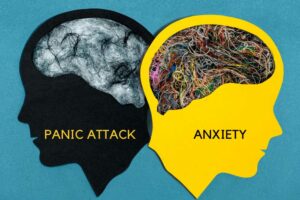Many people who have struggled with a drug or alcohol use disorder have found great support by attending Alcoholics Anonymous or other 12-Step meetings. Many people in 12-Step programs have found it beneficial to have a sponsor–someone they can contact in between meetings when questions or issues arise. Having a sponsor is not a requirement, but newcomers to 12-Step programs are encouraged to find one fairly soon after they start attending meetings. It’s never too late to get a sponsor, however.
What Is a Sponsor and What Do They Do?
A sponsor is someone who has been in a 12-Step program for a period of time and is maintaining his or her sobriety. A sponsor will partner with someone new to the program and work through the 12 Steps with the newcomer. The sponsor also serves as a sort of guide to the 12-Step program overall, answering questions and being available as issues arise, like cravings.
People active in 12-Step programs say that it is an honor to be asked to sponsor someone and that sponsorship is a way for them to be of service, which is an important part of the 12-Step philosophy. Generally, the sponsor and the sponsee will meet on a regular basis and check in with each other by phone or text frequently. A study on the benefits of sponsorship in 12-Step programs was recently conducted by the Recovery Research Institute, a non-profit research institute of Massachusetts General Hospital, affiliated with Harvard Medical School. The study found that having a sponsor resulted in better outcomes–continuing to abstain and remaining in the program.
What to Look for in a Sponsor
When you start to attend 12-Step meetings, you will be encouraged to find a “home” meeting–a meeting that you attend on a regular basis. Once you have done that, you can begin looking for a sponsor. At some meetings, the leader will ask anyone available to be a sponsor to raise his or her hand. You can also just approach someone–if nothing else, they will be flattered! As people share during the meeting you can get a feel for them and if you think you would be comfortable sharing information about your addiction and recovery with them.
You want to find a sponsor who has been sober for a year or more and it may be helpful to find someone who was addicted to the same substance as you–if alcohol was your addiction, find someone who drank. If you abused cocaine, find someone who did the same. Substance-specific meetings are available and you may wish to attend one of those. In addition to Alcoholics Anonymous (AA), you can find Cocaine Anonymous (CA), Narcotics Anonymous (NA), Marijuana Anonymous (MA) and many other support groups that use the 12-Step philosophy. (During the COVID-19 pandemic, many groups are meeting virtually.)
There are no rules to follow in finding a sponsor, although generally women are encouraged to find female sponsors and men are encouraged to find male sponsors. What’s most important is that you find someone who you feel comfortable with. Find someone who is happy with their sobriety, someone who has truly embraced a sober lifestyle–someone who can share what it’s like to be sober and can share coping mechanisms that he or she has found to be useful. You may seek to find someone with whom you share common interests or someone whose life you admire. For example, if you are working to repair your marriage, finding a sponsor who has a healthy marriage would be helpful.
Your sponsor should be someone who has worked the steps and can help you as you begin your step work. Your sponsor ideally will be someone who is familiar with AA in a broader context and can serve as a sort of guide for you.
After you have asked someone to be your sponsor, and they have accepted, it’s helpful to discuss the expectations that you both have. You and your sponsor will spend time outside of meetings working the steps and dealing with other related issues that may arise. While you want to find a sponsor with whom you can discuss almost anything, you also want a sponsor who understands the scope of being a sponsor. Your sponsor is not your therapist or a medical doctor and should not act as a replacement.
An Act of Service
It may seem like your sponsor is doing all the work and you are getting all the benefits, but that is not the case. Helping someone to work the steps is an act of service, and being of service is one of the foundations of 12-Step programs. It is considered an honor to be asked to sponsor someone, and most people will be glad to do it. And you will have an opportunity to pay it forward–when you have been in the program for some time and have truly embraced your sober lifestyle, you may be asked to serve as a sponsor.
After leaving formal treatment, it is recommended that you attend a support group on a regular basis. Many people in recovery have found attending Alcoholics Anonymous or another 12-Step program to be extremely helpful for maintaining their recovery. Part of being in the 12-Step fellowship is working with a sponsor or serving as someone’s sponsor. Many treatment centers will help you to find meetings in your area, and Promising Outlook is no exception. Promising Outlook is a comprehensive outpatient drug and alcohol treatment center located in Riverside, California. We treat the whole person, working to identify and address trauma or mental health issues that may be contributing to substance abuse. The treatment modalities offered at Promising Outlook include cognitive behavioral therapy (CBT), dialectical behavioral therapy (DBT), relapse prevention, motivational interviewing, and anger management classes. If you or someone you know is struggling with an addiction to drugs or alcohol, call 866.980.2869.






